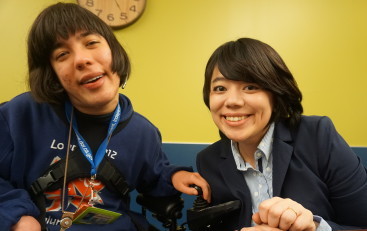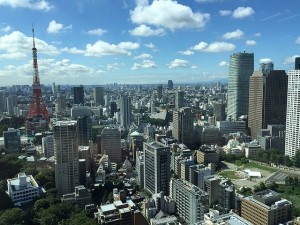This article is also available in: 日本語

Like Fiona mentioned in part 1, I think Japan has those 3 issues in a different situation.
Japan adopted a quota system and requires employers, to hire a certain amount of people with disabilities to meet their requirements.
In companies with more than 50 employees, 2% of those employees must be people with disabilities.
The latest statistics, updated in November 2015 by The Ministry of Health, Labour and Welfare of Japan, show that only 47.2% of targeted companies have met the quota.
The number is increasing slightly every year, but still more than half of the companies don’t hire people with disabilities, even though a law is in place.
Architectural accessibility is lacking, even in Tokyo.
Most of the old buildings are not accessible, which makes it harder for people with disabilities to find a place to work and to go out for social activities.
In the countryside, the situation is even worse.
Surprisingly, sometimes I even find a new building which is built without consideration of accessibility.
According to the data produced in September 2015 by Ministry of Internal Affairs and Communication of Japan, 26.7% of the population is over 65 years old.
Making buildings more accessible means more people, not just people with disabilities, can access them, which includes the elderly.
Until I started my research, I had not heard the English word, “stigma”.
Since my interviewees used this word so often, I now know the word and its meaning…that means many advocates for disability rights see a lot of stigma for people with disabilities.
In Japan, I see people with and without disabilities having stigma, too.
Not only historical background, but also media, which has a strong power in Japan, emphasizes those stigmas.
Most of the TV programs featuring people with disabilities, only focus on how their lives are difficult.
I am not saying their lives are not difficult.
What I am saying is that the difficult side of the stories of people with disabilities does not make the whole story.
There are still many people with disabilities who have a happy life with their family and friends, are doing what they love to do, and are enjoying everyday living.

To be able to live independently, we’ve got a lot of challenges in Japan that require attention.
Looking back at the history of disability rights, as well as human rights, we have improved greatly, and do have good culture and resources to work with, including our hospitality, teamwork, economic power, technological skill, and so forth.
We need to keep moving forward and make our society even better.
Fortunately, we have the honor of hosting one of the most exciting international events, Olympic and Paralympic Games in 2020!
Many people with or without disabilities will come to Japan from all around the world, and will actually experience Japan in person.
I bet their expectations are very high.
We, each of us in Japan, think about this and should take action.
We can make Japan much better.
